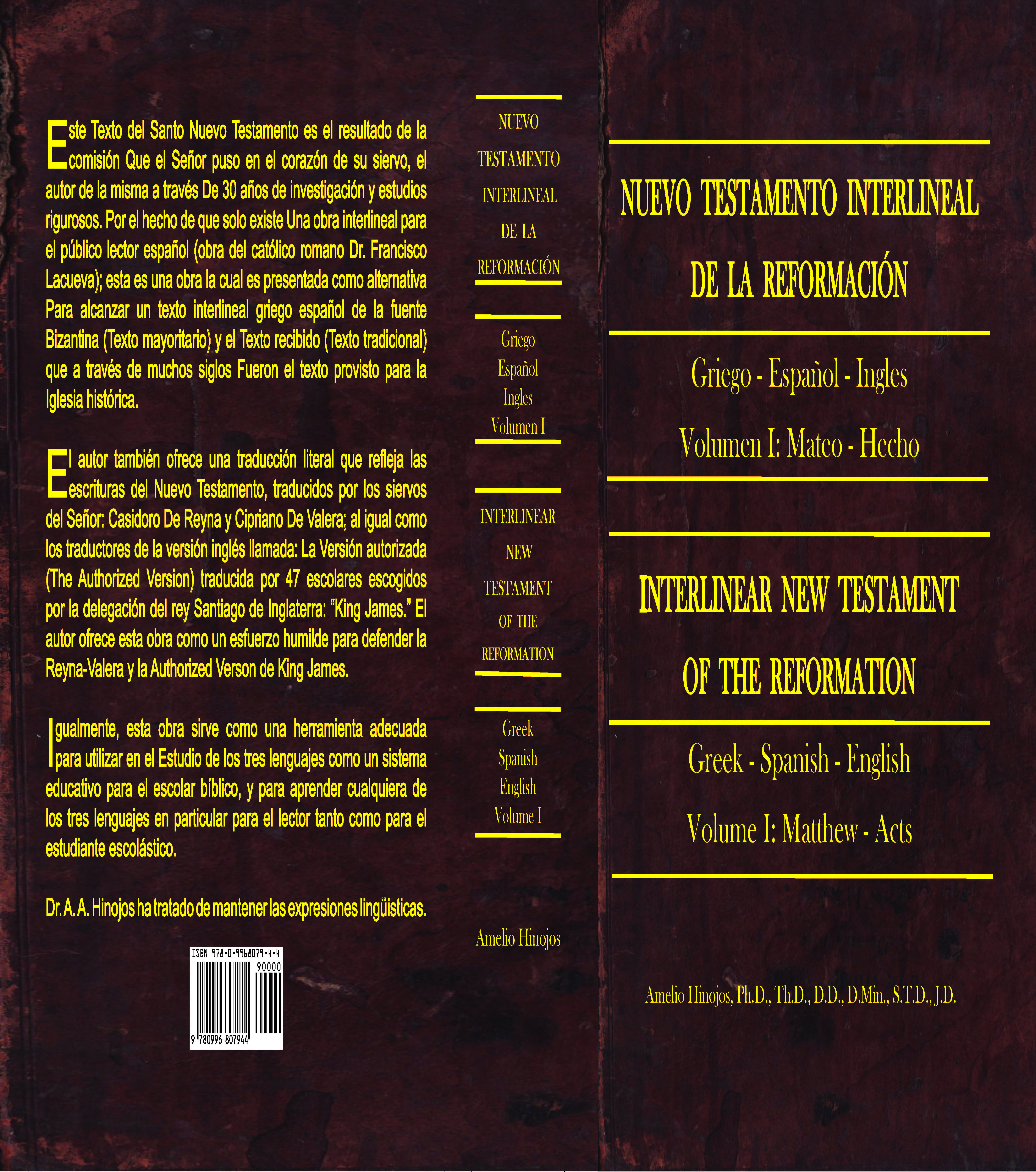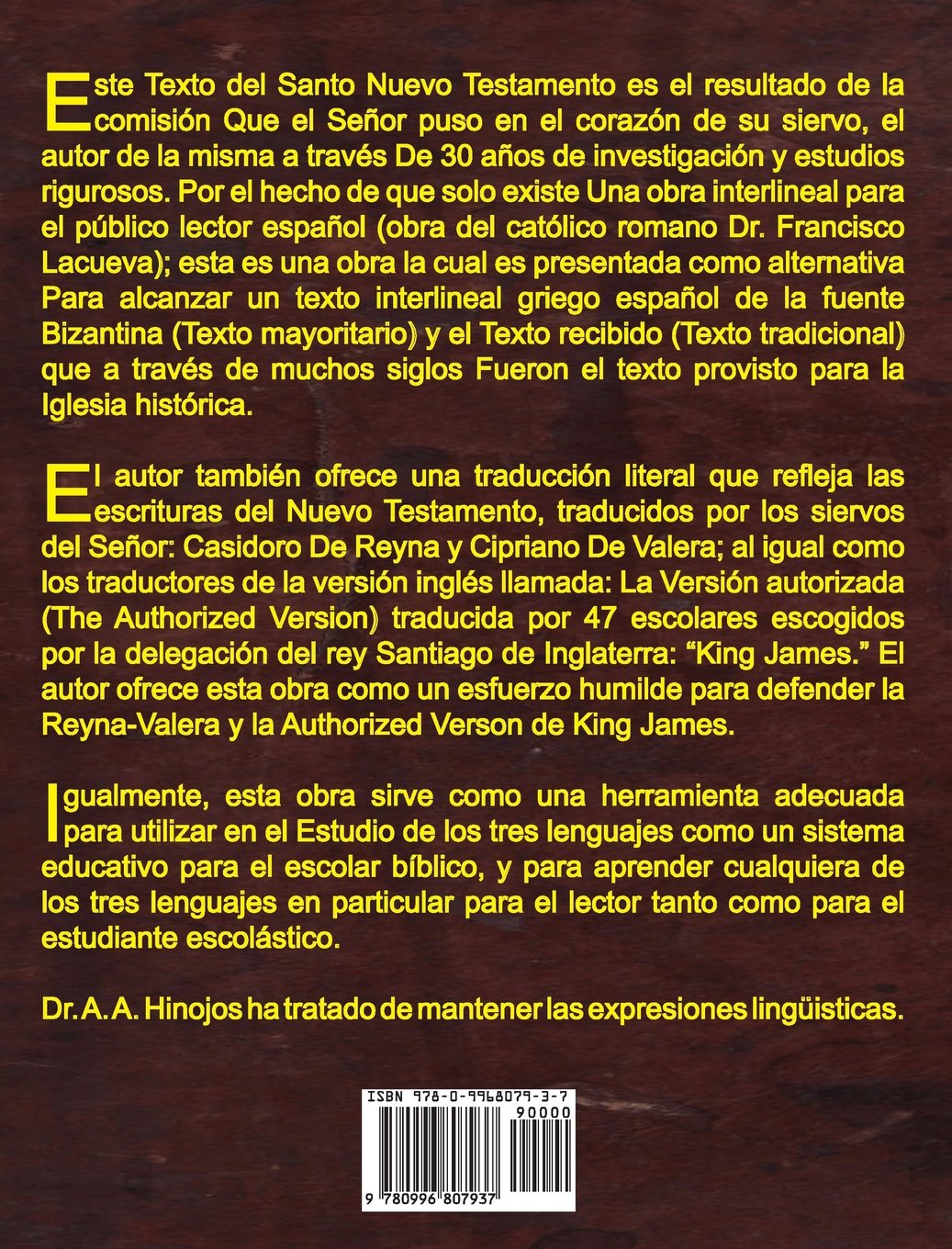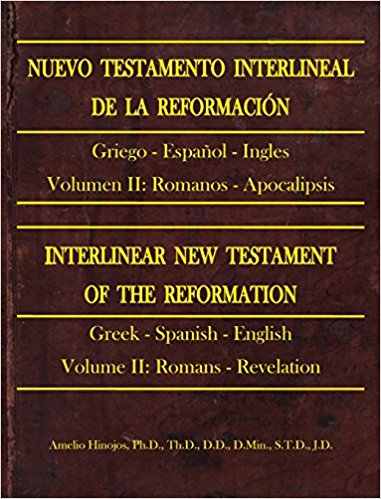
Ordering eBooks
The following ebooks are copyrighted ©. All applicable copyright laws apply. The ebooks are for the owners personal use and the material may not be reproduced, copied, distributed, or sold. Please be aware that all e-reader devices do not display the text similarly. The ebooks are designed and formatted to work well on a variety of applications/devices, but not all apps or devices are equal. Some allow the user to control appearance and layout of the book while some do not even show italics!
After Paypal payment is complete you will be returned to a download page. Please wait to be re-directed back to the TOP site from Paypal! Please give the download ample time. Some of the technical theological ebooks are larger files.
*Please contact the Web-Master with any download issues.
 The task of translating scripture is a delicate and challenging endeavor. The translator must possess a reverent disposition towards the handling of the word of God with the understanding that he is standing on holy ground. He must also be perspicuously aware of the historic doctrines and teachings of orthodoxy in general. The intellectual and spiritual acumen required by such undertaking are of indispensable importance.
The task of translating scripture is a delicate and challenging endeavor. The translator must possess a reverent disposition towards the handling of the word of God with the understanding that he is standing on holy ground. He must also be perspicuously aware of the historic doctrines and teachings of orthodoxy in general. The intellectual and spiritual acumen required by such undertaking are of indispensable importance.
The translator must never deface the glorious structure of the original language – for what may seem simplicity or crude expression to us may be the very nature of spiritual revelation of holy writ. One must be conscious of the power of divine revelation. Inspiration is not limited to Hebrew and Greek words communicated to men but extends to whatever words are exactly representative of the original dictum. The translation must as formally and as perfectly possible represent the adequate counterpart of the original text. The inspiration only extends by the exactness of its representation. When words fall short of such exactitude or some divergence exists between the copy and the original, the copy falls short of the required adequacy to the extent it diverges from the original. Thus the translation falls short of a true representation of the original text – deteriorating into a distorted composition of what was to be adequately represented by the scholar.
There seems to be no end to translations. Translating has become licentious and undisciplined. The number of translations that now exist among readers fall short of accuracy to outrageous degrees. Many disagree and even contradict the others.
If the scriptures of the New Testament are God’s perfect word why the constant need for revision? If it is adequately translated from the outset there ought be no need for revising. It more speaks of the incompetence of the presumed translators than God’s book. Perhaps such is the lot of the translators but certainly not the lot of holy writ. The best one could expect of a translator is that he restrict his pen to the original text as exact as possible. No guessing, no interpreting, no dynamics, no paraphrasing, but rather, transmitting the exact word for word of the original – as crude as the sound or order of words may seem to the translator. If he wishes to interpret or paraphrase let him write his own works separate from the text and not as if they were the text.
Four centuries of the glorious Authorized Version (King James Bible) has placed that work in impeachable honor. It well holds the reputation of the greatest literary work of the English language. Its representation of the original languages is most excellent. The King James Bible is a reverent language translation. It utilizes the English of reverent worship. It can be easily memorized and quoted. If translators are to revise that glorious work, the awesome task is not to replace the majestic language of the Book, but to revise its archaic elements without affecting the translation itself. This author does not find fault with that great translation. Neither is it the intended task to revise or replace (goodness never that) the venerable King James Bible. If anything, this translation is a supplement to that Great and venerable work.
The intended function of this translation is to provide a simple direct literal translation of the New Testament without attempting to refine or change the order of the original text. The text presented herein is a literal translation of the Byzantine – Textus Receptus text that was reverently guarded throughout the history of the Christian church. The author in no manner claims a perfected work, but an effort at an adequate literal translation of the New Testament of our Lord and Savior Jesus Christ. It is strongly recommended that the reader research the history of the text for the reader’s own benefit. “To God’s Glory,” “Prara La Gloria De Dios,” “Gloria Dei,” Amelio Hinojos, Ph.D., Th.D., D.D., D.Min., S.T.D., J.D.
[Publisher’s note: This work is an academic work for the Spanish speaking culture to demonstrate the importance of the Greek Received or Traditional text. The English translation is in no way intended to replace the venerable, accurate, and faithful King James Bible or the Reina Valera Gomez Spanish Bible. See the author’s comments. For these reasons, The Old Paths Publications, Inc., agreed to publish this work. Vol. 2, Romans – Revelation, will be out in about a month.]
|
Where to
Purchase: NUEVO TESTAMENTO INTERLINEAL DE LA REFORMACIÓN: INTERLINEAR NEW TESTAMENT OF THE REFORMATION Volume I: MATTHEW TO ACTS |
||
|
|
||
![]()


The task of translating scripture is a delicate and challenging endeavor. The translator must possess a reverent disposition towards the handling of the word of God with the understanding that he is standing on holy ground. He must also be perspicuously aware of the historic doctrines and teachings of orthodoxy in general. The intellectual and spiritual acumen required by such undertaking are of indispensable importance.
The translator must never deface the glorious structure of the original language – for what may seem simplicity or crude expression to us may be the very nature of spiritual revelation of holy writ. One must be conscious of the power of divine revelation. Inspiration is not limited to Hebrew and Greek words communicated to men but extends to whatever words are exactly representative of the original dictum. The translation must as formally and as perfectly possible represent the adequate counterpart of the original text. The inspiration only extends by the exactness of its representation. When words fall short of such exactitude or some divergence exists between the copy and the original, the copy falls short of the required adequacy to the extent it diverges from the original. Thus, the translation falls short of a true representation of the original text – deteriorating into a distorted composition of what was to be adequately represented by the scholar.
There seems to be no end to translations. Translating has become licentious and undisciplined. The number of translations that now exist among readers fall short of accuracy to outrageous degrees. Many disagree and even contradict the others.
If the scriptures of the New Testament are God’s perfect word, why the constant need for revision? If it is adequately translated from the outset there ought be no need for revising. It more speaks of the incompetence of the presumed translators than God’s book. Perhaps such is the lot of the translators but certainly not the lot of holy writ. The best one could expect of a translator is that he restricts his pen to the original text as exact as possible. No guessing, no interpreting, no dynamics, no paraphrasing, but rather, transmitting the exact word for word of the original – as crude as the sound or order of words may seem to the translator. If he wishes to interpret or paraphrase let him write his own works separate from the text and not as if they were the text.
Four centuries of the glorious Authorized Version (King James Bible) has placed that work in impeachable honor. It well holds the reputation of the greatest literary work of the English language. Its representation of the original languages is most excellent. The King James Bible is a reverent language translation. It utilizes the English of reverent worship. It can be easily memorized and quoted. If translators are to revise that glorious work, the awesome task is not to replace the majestic language of the Book, but to revise its archaic elements without affecting the translation itself. This author does not find fault with that great translation. Neither is it the intended task to revise or replace (goodness never that) the venerable King James Bible. If anything, this translation is a supplement to that Great and venerable work.
The intended function of this translation is to provide a simple direct literal translation of the New Testament without attempting to refine or change the order of the original text. The text presented herein is a literal translation of the Byzantine – Textus Receptus text that was reverently guarded throughout the history of the Christian church. The author in no manner claims a perfected work, but an effort at an adequate literal translation of the New Testament of our Lord and Savior Jesus Christ. It is strongly recommended that the reader research the history of the text for the reader’s own benefit. “To God’s Glory,” “Prara La Gloria De Dios,” “Gloria Dei,” Amelio Hinojos, Ph.D., Th.D., D.D., D.Min., S.T.D., J.D.
[Publisher’s note: This work is an academic work for the Spanish speaking culture to demonstrate the importance of the Greek Received or Traditional text. The English translation is in no way intended to replace the venerable, accurate, and faithful King James Bible or the Reina Valera Gomez Spanish Bible. See the author’s comments. For these reasons, The Old Paths Publications, Inc., agreed to publish this work. Vol. 2, Romans – Revelation.]
| Where to
Purchase: NUEVO TESTAMENTO INTERLINEAL DE LA REFORMACIÓN: INTERLINEAR NEW TESTAMENT OF THE REFORMATION : VOLUMEN II: ROMANOS TO APOCALIPSIS (Interlinear, Greek, Spanish, English) |
||
|
|
|
|
Back to the Book Store Page

"He keepeth the paths of judgment, and preserveth the way of his saints."
Proverbs 2:8
“If religious books are not widely circulated among the masses in this country, I do not know what is going to become of us as a nation. If truth be not diffused, error will be; if God and His Word are not known and received, the devil and his works will gain ascendancy; if the evangelical volume does not reach every hamlet, the pages of a corrupt and licentious literature will; if the power of the gospel is not felt throughout the length and breadth of the land, anarchy and misrule, degradation and misery, corruption and darkness will reign without mitigation or end.” Daniel Webster, 1823.